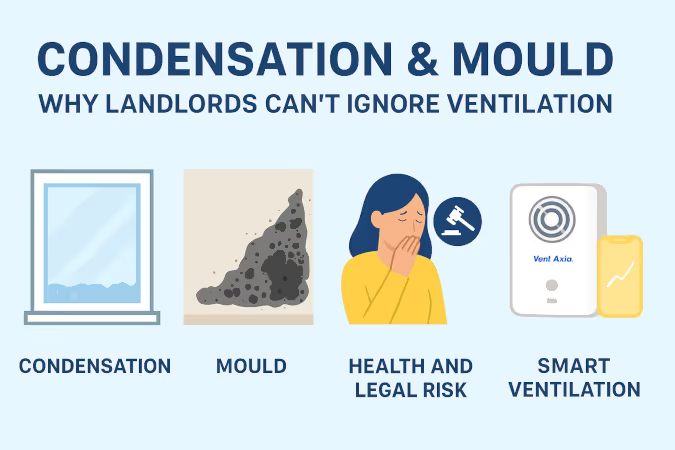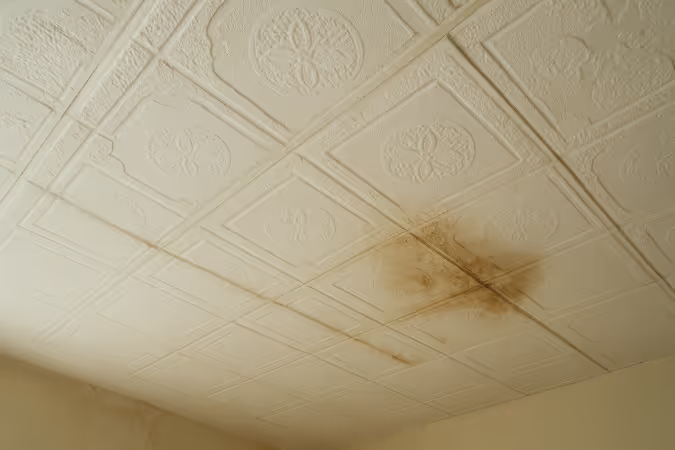Rogue landlords are not always who they seem…
Not all poor housing standards are in the private sector, many social landlords have problems reaching the new higher standards expected of all landlords.
The popular media has it that all rogue landlords are in the private rented sector (PRS). Well, it’s true there are many private landlords operating below the radar, renting out squalid properties that don’t meet current regulations on health & safety.
But, and this is a rather big but, local councils, those corporate bodies tasked with enforcing the standards in the private rented sector (PRS), are also landlords. Many of them too, arguably fall into the category of “rogue” landlords.
Here are some recent headlines:
- Councils across Yorkshire at fault for dozens of issues with leaks, damp and mould
- Luton Council at fault for multiple issues with leaks, damp and mould
- Leaks, damp and mould - all the rulings made against London councils for poor housing last year
- Council 'failing' tenants amid rising damp and mould complaints with rents to rise
- Councils slammed for shocking treatment of social housing tenants
- Regulator of Social Housing accuses district council of “serious failings” amid fire assessment concerns
- The Ombudsman highlights lessons from 27 landlords as it releases severe maladministration reports on leaks.
The Housing Ombudsman (HO) has produced a series of ‘learning from severe maladministration’ reports, looking at social landlords’ responses to their various failings.
The HO states:
“With the important role that social housing has to play in giving safe and secure housing to millions, the learning in these reports will help landlords provide effective services that protect this aspiration. And the conclusions from one such report:
“The themes in this report are clear, including poor diagnosis, excessive delays and a failure to consider vulnerabilities. The sector should be handling leaks more effectively under obligations in the Landlord and Tenant Act and the introduction of Awaab’s Law will require proactive and timely resolution.”
A rise in complaints
There has been a massive rise in rulings against social landlords for leaks, damp and mould issues, with one charity warning that the new legislation may not be enough to improve social housing conditions.
The Housing Ombudsman deals with complaints from social housing tenants about the state of their accommodation. In the cases where the social landlord fails to do something; is causing unreasonable delays for repairs; or has failed to help its tenants as it should, the ombudsman can rule the tenant has been a victim of maladministration. Here are a few examples:
The Ombudsman’s figures show that in the case of Luton Council there were three such findings related to leaks, damp and mould in its properties in 2024, while in Yorkshire the organisation identified 79 cases related to leaks, damp and mould in properties managed by all councils across Yorkshire and The Humber in 2024.
A meeting at Cambridge Council noted that more should be done to tackle damp, condensation and mould issues in Cambridge council homes. Opposition councillors there called for more investment to be put into dealing with the issue at a full Cambridge City Council meeting. They also raised concerns about an alleged 300 emails, complaints from council tenants about damp and mould, that had gone missing.
The Regulator of Social Housing (RSH) found ‘serious failings’ in Newcastle City Council’s management of social housing properties while Nottingham City Council faced similar issues. Its damning findings included: over 1,800 overdue repair cases; over 1,000 outstanding damp and mould issues; a significant backlog of fire safety remedial actions; a lack of up-to-date stock condition surveys; insufficient information to understand tenant needs; and a lack of an up-to-date domestic abuse policy.
Harlow District Council has been criticised by the RSH for failing to meet its new consumer standards. The council was given a C3 grade in September last year, which means there are serious failings, and it was told it needs to make significant improvements. RSH investigated Harlow after reviewing its Tenant Satisfaction Measure (TSM) results.
The Regulator concluded that the council had carried out fire risk assessments for only 20% of buildings that it should have done, out of its 9,100 social housing homes, there were more than 500 high risk fire safety remedial actions overdue, and a further 1,500 medium risk actions overdue (the majority of which were more than 12 months late. Harlow said it was working to complete the outstanding fire risk assessments and resulting actions, starting with the highest risk blocks.
Kate Dodsworth, Chief of Regulatory Engagement at RSH, said at the time:
“It is unacceptable that Harlow Council has failed to meet fire safety requirements. Providing safe, decent homes for tenants begins with robust data, and this must include fire risk assessments for every home that needs one. The regulatory judgement for Harlow was one of others ten published (25 September 2024).
London councils have come under the spotlight for a staggering number of issues related to leaks, damp, and mould found in its social housing properties throughout 2024, according to the latest available figures.
The Housing Ombudsman, which addresses grievances from tenants about their homes' conditions, can declare “maladministration” if landlords fail to act, cause undue delays, or don't support their residents.
Data from the body reveals there were 404 rulings on leaks, damp, and mould across London's council-managed homes in 2024, with 97 deemed 'severe' maladministration cases, indicating the landlord's actions severely affected the tenant's wellbeing.
Over five years, there have been 781 such decisions, 185 being severe. The Social Housing Action campaign reports a surge in tenant complaints about these issues.
One council spokesperson commented:
“The Housing Ombudsman performs an important role within the social housing sector, and we work closely with them on any cases that they investigate. Whilst findings of Maladministration are disappointing, the findings can refer to deadlines within internal processes, rather than dealing with the issues around damp and mould.
“It is important to state that the Government has redefined the powers of the Ombudsman in the past year and the Housing Ombudsman is now working closely with the Housing Regulator.
“The changes in the Ombudsman powers means that they can make orders against a landlord, whereas in the past they could only advise (although we have always complied with any advice from the Ombudsman).”
Higher standards needed
Awaab’s law sets a high bar for both social as well as for private landlords, but many local authorities and housing associations fail to reach it.
Following the Awaab case (a housing association flat was involved) a government review of social housing conditions recommended a full audit of all 2.5m social homes, including for damp and mould. The media reports above have highlighted many other cases of poor-quality housing up and down the country.
The Decent Homes Standard
The Renters’ Rights Bill is about to bring the DHS requirements to private rented sector homes and will “provide local councils with effective and proportionate enforcement powers. We have committed to consult on our plans for a reformed Decent Homes Standard that will apply to both the social and private rented sectors.”
The question is, will these councils get their own house in order before or at the same time as imposing these new regulations on private landlords? How effectively will cash strapped councils be able to apply the higher standards given the limited resources they have?















.avif)
.avif)





















Comments